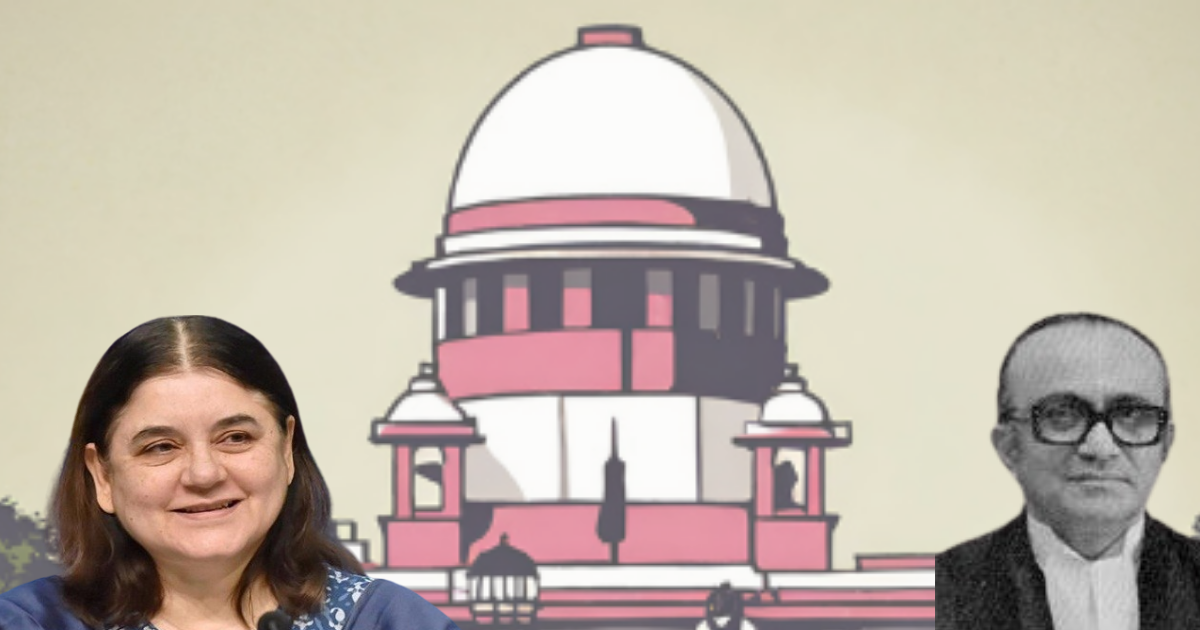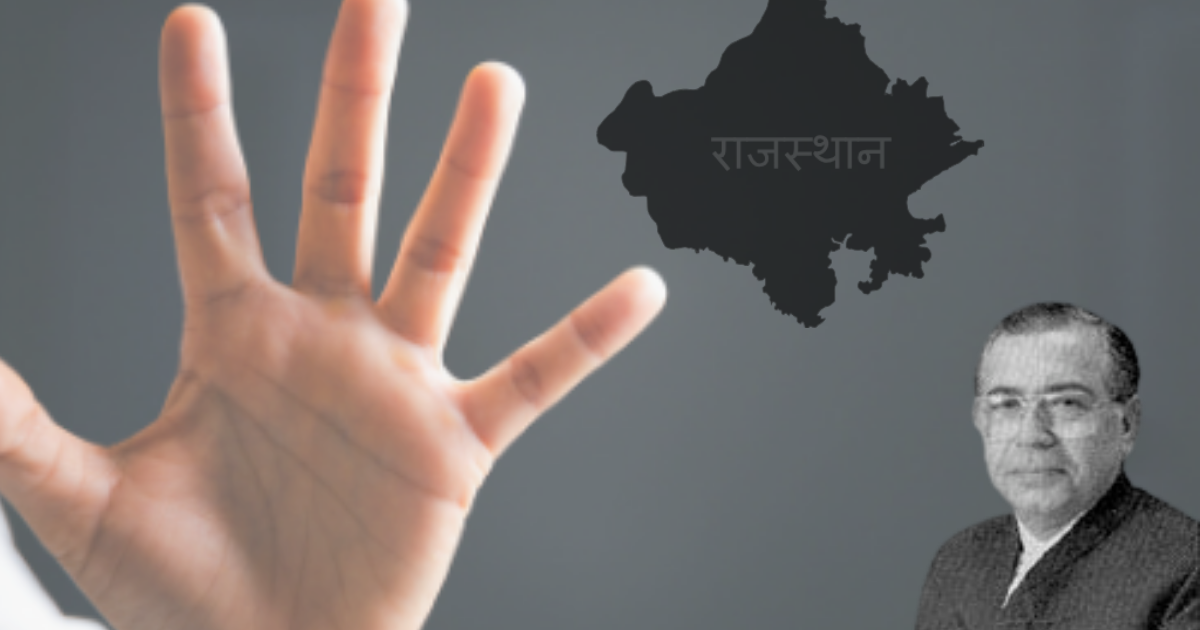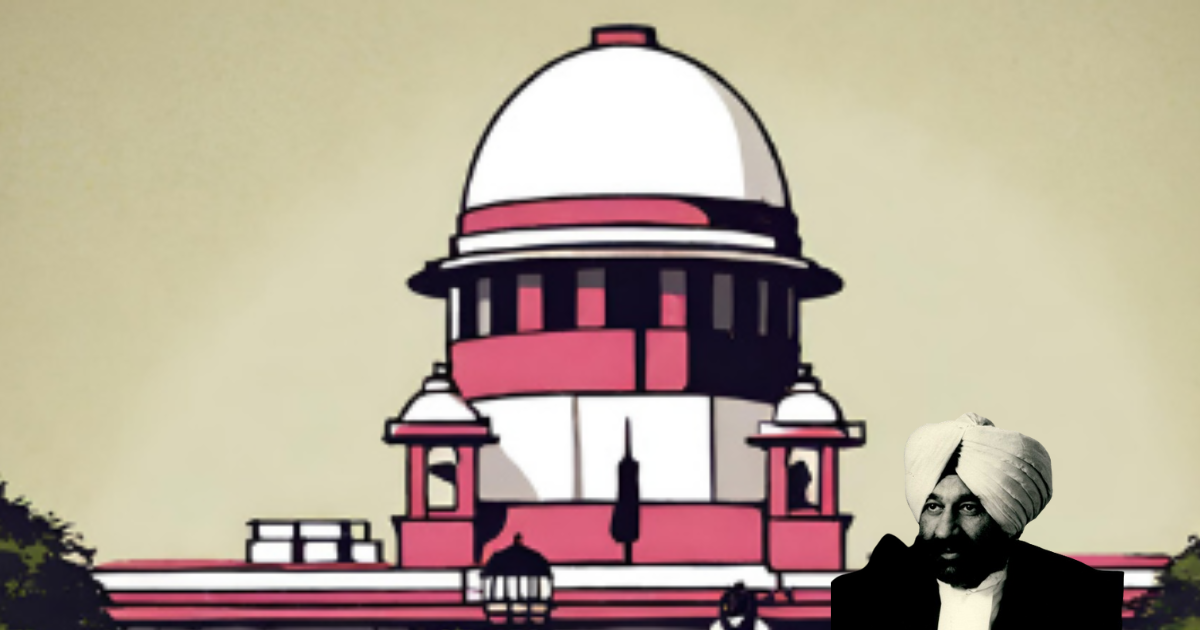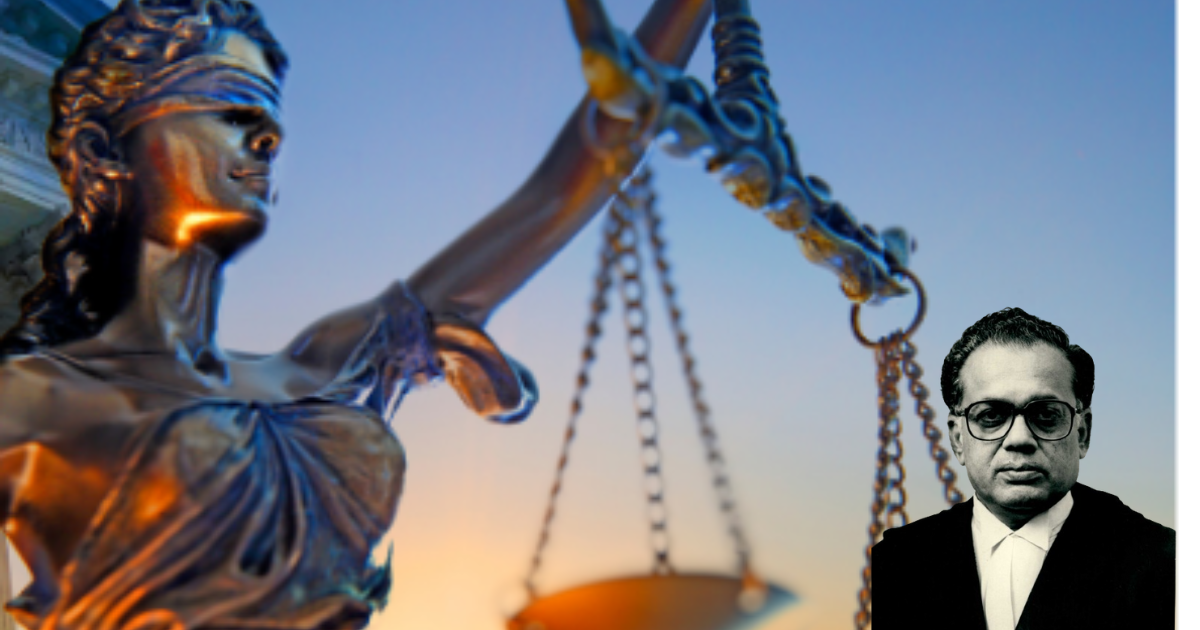In the annals of Indian constitutional jurisprudence, the case of Maneka Gandhi v. Union of India (1978) unfolds as a riveting legal odyssey that transcended the boundaries of personal liberty, procedural fairness, and the constitutional mandate. The protagonist, Maneka Gandhi, embarked on a journey through the corridors of legal intricacies, challenging the government’s decision to impound her passport, and in the process, reshaping the contours of administrative action and individual rights.
The narrative commences with Maneka Gandhi, an independent-minded journalist, facing the brunt of the government’s executive action. The government, under the authority of Section 10(3)(c) of the Passport Act, had impounded Maneka’s passport without providing her with an opportunity to be heard. This arbitrary exercise of power became the crucible for a constitutional challenge that would echo through the chambers of the Supreme Court.
Maneka Gandhi, represented by a legal team led by the eminent Nani Palkhivala, mounts a spirited challenge before the Supreme Court, invoking the protection of fundamental rights under Articles 14, 19, and 21 of the Indian Constitution. The crux of her argument lies in the contention that the government’s action violated the principles of natural justice and procedural fairness.
The legal analysis in Maneka Gandhi’s case embarks on an exploration of constitutional values and the delicate balance between executive powers and individual rights. The Supreme Court, led by Chief Justice Y.V. Chandrachud and a bench of distinguished justices, grapples with the question of whether the government’s actions were arbitrary and violative of the petitioner’s fundamental rights.
In a landmark judgment that stretches the horizons of constitutional interpretation, the Court delves into the nuances of personal liberty. The majority opinion, authored by Chief Justice Chandrachud, interprets Article 21 as a repository of several rights beyond the mere right to life and personal liberty. The judgment draws inspiration from earlier decisions such as Gopalan v. State of Madras (1950 SCR 88) and Menaka Gandhi v. Union of India (1978 AIR 597), gradually expanding the scope of fundamental rights.
The Court, in its wisdom, propounds the “procedure established by law” clause in Article 21 as not just any procedure but a fair, just, and reasonable procedure. The judgment heralds a departure from the narrow interpretation of procedural fairness, setting the stage for a more nuanced understanding of administrative action within the framework of fundamental rights.
The aftermath of Maneka Gandhi’s case reverberates through the legal landscape, fundamentally altering the approach to administrative actions that impinge upon personal liberty. The judgment prompts a reevaluation of laws and procedures that affect individual rights, emphasizing the need for fairness and reasonableness in state actions.
The dissenting voices, represented by Justice Beg and Justice Bhagwati, offer valuable perspectives on the contours of procedural fairness and the limits of judicial review. While concurring on the invalidity of the impoundment, the dissenting judges emphasize different aspects of the case, contributing to the broader discourse on constitutional interpretation.
In view of the statement that the petitioner may make a representation in respect of impounding of passport and that the representations will be dealt with expeditiously and that even if the impounding of the passport is confirmed it will not exceed a period of six months from the date, of the decision that may be taken on the petitioner’s representation, it is not necessary for me to go into the merits of the case any further. The Attorney General assured us that all the grounds 776 urged before us by the petitioner and the grounds that may be urged before the authority will be properly considered by the authority and appropriate orders passed. In the result, I hold that the petitioner is not entitled to any of the fundamental rights enumerated-in Article 19 of the Constitution and that the Passport Act complies with the requirements of Art. 21 of the Constitution and is in accordance with the procedure established by law. I construe section 10(3)(c) as providing a right to the holder of the passport to be heard before the passport authority and that any order passed under section 10(3) is subject to a limited judicial scrutiny by the, High Court and the Supreme Court. In view of the statement made by the learned Attorney General to which reference has already been made in judgment, I do not think it necessary to formally interfere with the impugned order. I accordingly dispose of the Writ Petition without passing any formal order. There will be no order as to costs. ORDER Having regard to the majority view, and, in view of the statement made by the learned Attorney-General to which reference, has already been made in the judgments we do not think it necessary to formally interfere with the impugned order. We, accordingly, dispose of the Writ Petition without passing any formal order. The passport will remain in the custody of the Registrar of this Court until further orders. There will be no order as to costs.
Citation: 1978 AIR 597 1978 SCR (2) 621 1978 SCC (1) 248
Case Title: MANEKA GANDHI Vs. UNION OF INDIA



